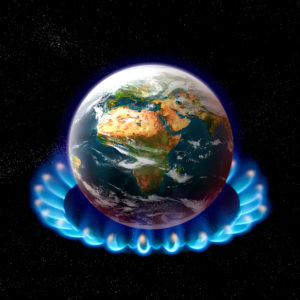President Trump’s refusal to accept the basic science of climate change might cost him the election — but if it doesn’t, he has an obligation to acknowledge its existence.
After all, it’s not just the liberals who are looking for action on this front: Over three-quarters of GOP voters want to see the government take steps to reduce greenhouse gas emissions.
A whopping 90 percent of Republicans said their view of President Trump would become more favorable if he embraced a conservative approach to addressing clean energy and climate change by prioritizing technology innovation and competition, according to polling from The Conservation Coalition and the Conservative Energy Network.
In 2016, Trump was able to ride the wave of right-wing populism all the way to the White House. He won despite — not because of — his unwillingness to engage in the climate debate. He got away with it because, four years ago, the environment wasn’t really on the agenda.
Not enough people cared. But a great deal has changed since 2016, and the public has woken up to the urgency of climate change.
The left, of course, has been hyperactive in this arena. It has produced Extinction Rebellion, Greta Thunberg and the Green New Deal — a ghastly socialist framework for a planned economy.
In response, a new generation of right-leaning activists has risen up to ignite a climate debate on the Right of American politics. Enthusiastic young conservatives and libertarians are stepping up to offer pro-market, pro-liberty alternatives to eco-socialism. This is a conversation that’s just beginning to get good.
Yet, for some reason, the White House is staying out of it completely. In fact, when he was asked about the role of climate change in the horrific Californian wildfires last month, Trump’s response was cringe-inducing: “It will start getting cooler. Just you watch.”
Trump must stop sidestepping this topic and have a stance on this issue — one that’s not woefully dismissive. If he doesn’t, leftist, authoritarian measures will end up put in place to address it. It doesn’t have to be this way because Trump has much at his disposal already. Not only do viable alternatives to the Green New Deal exist, but they’re already gaining some traction.
The American Climate Contract, for instance — a product of the energetic young campaign group the American Conservation Coalition — has already earned endorsements from a dozen Republican members of the House of Representatives and several think tanks, thanks to its constructive and exciting pro-growth policy proposals in the fields of clean energy and green innovation.
It has supporters in the bag like Rep. Dan Crenshaw (R-Texas) and House Minority Leader Rep. Kevin McCarthy.
Despite this clear demand from voters for a positive, right-of-center environmentalism, and the vibrant policy debate already taking place within the Republican Party, the president and his advisers are content to be years behind everybody else on this.
Ten percent of those who supported Trump in 2016 are considering voting him out on Tuesday — and the data suggests that the environment is the key to keeping them on his side.
And even if Trump wins and continues on his current path of climate apathy, he’s setting the GOP up for failure and a future with no meaningful plan to fix a problem a majority of Americans are terribly worried about.
Many are desperate to vote red but cannot bring themselves to endorse a position of indifference (much less denial) on what they perceive to be the most significant and existential issue of our time.
A generation of young conservatives is itching for a presidential candidate who rejects the myopic interventionism of the Left, recognizes the unparalleled power of capitalism and the free market to bring about positive change, and tackles the climate emergency head-on.
The 2016 election was about the present. The victorious Trump campaign was founded on fears about threats that were perceived by many to be real and urgent, such as mass immigration and globalization. It was focused on things voters could see and touch, problems they faced in the here and now.
Things are different now: Voters have an eye on the future. They want to know that their government is capable of leading the American economy to a full recovery after the coronavirus pandemic. They want to be sure that their leaders are willing to stand up to China.
And, crucially, they want to see that their president and their elected representatives are taking climate change seriously.
That means doing everything within his power to protect and safeguard our planet — for the sake of his citizens children and grandchildren. If Donald Trump manages to pull it out of the hat, then he needs to honor their wish.

